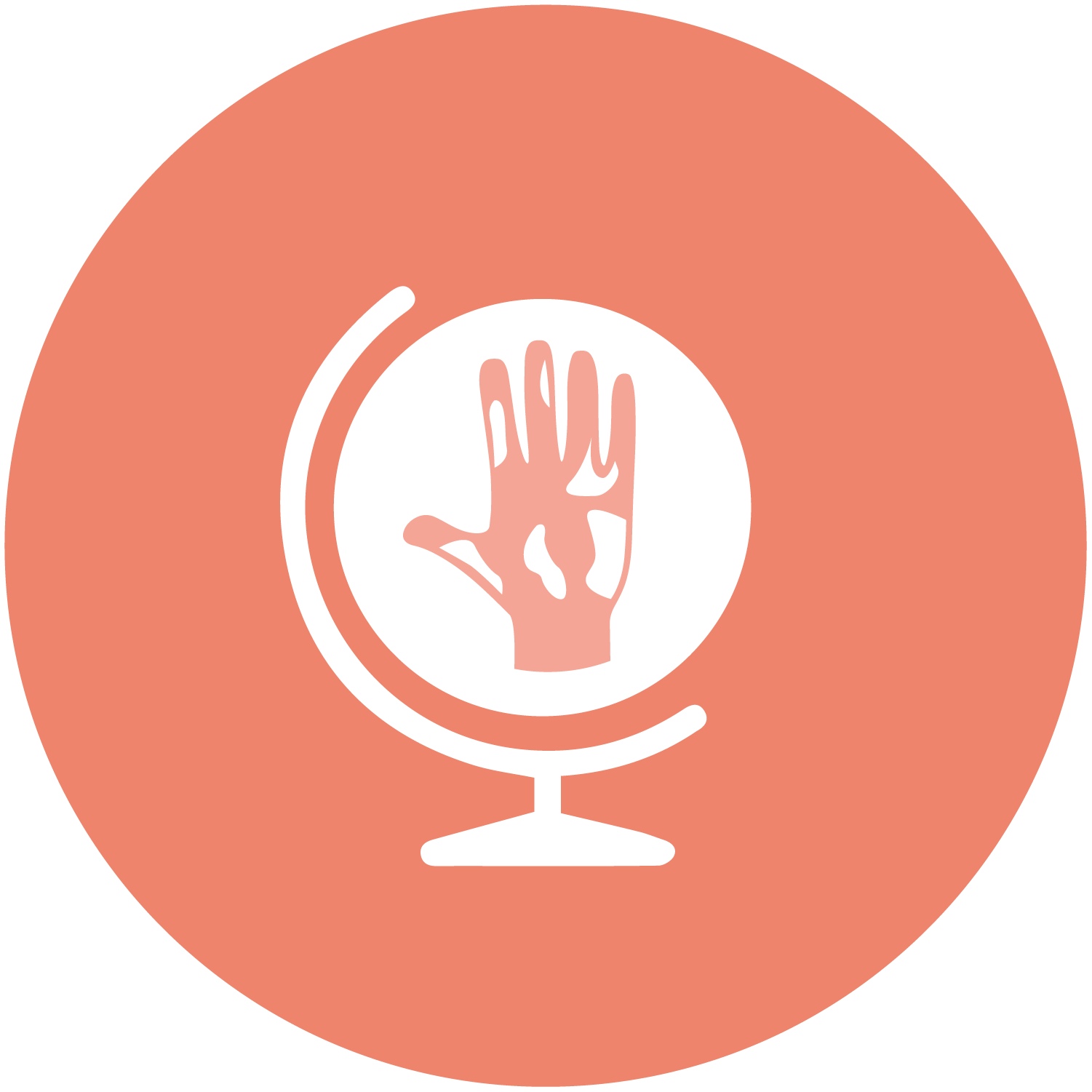Lesson 6 of JointHealthTM Education – Psoriatic Arthritis focuses on the world around you and how to successfully manage challenges you may face with psoriatic arthritis.
These include how to explain PsA to your family, friends, co-workers, employers, and even strangers, and learning how to ask for support and help. Skin symptoms of PsA may also make patients feel self-conscious and this can affect how you deal with intimacy issues.
At the end of Lesson 6, you will understand how your PsA can affect, or be perceived by, your family and friends, your co-workers and employer. You will know how to better communicate about PsA and ask for consideration or help when needed, share your PsA experience with your life partner and understand how they themselves may be experiencing difficulty dealing with your diagnosis and disease experience, and have the confidence to raise these issues with your rheumatologist.
Please read each section of this lesson carefully, and then when you are ready, take the Lesson 6 Quiz to test your new knowledge. The quiz is an interactive and printable PDF.

Explaining PsA to the people in your world
Psoriatic arthritis is misunderstood or not well understood by the public. Most think “arthritis” is one disease when in fact there are over 100 different types. Many people may also not understand the difference between psoriasis and psoriatic arthritis. It can be very frustrating for the person newly diagnosed with PsA to explain that to family, friends, co-workers and employers, as well as strangers they encounter and interact with through their days. They, themselves are overwhelmed by the disease and may not understand it fully.
While PsA is a complex disease whose cause is unknown, there are ways to help the people in your life better understand what you are facing. Directing them to research-based on-line reading sources, like jointhealth.org and others, is a good place for them to start their learning process.
You want to have the words to effectively describe the disease and inform people close to you PsA is an autoimmune disease with no known cause or cure: “the immune system triggers body-wide inflammation which attacks my soft tissue, joints and organs.”
Although most people understand that arthritis is not contagious, a skin rash may confuse someone who knows little about psoriasis or PsA. You may choose to emphasize that psoriatic arthritis cannot be spread to others.
Sometimes comparing your PsA to other diseases better understood by the public is a good way to help the people in your life understand it is a serious disease:
For example, people with type 1 diabetes require insulin on a daily basis to manage their blood sugar. Depending on the severity of their disease, people with PsA also require daily, weekly and monthly medication, often in combination and sometimes administrated through injections or IV.
Another effective communication comparison is with types of cancer involving tumors. The “tumor” in PsA is inflammation and the goal of a well-rounded treatment plan is to eliminate the inflammation, just like cancer treatment is intended to eliminate the tumor.

PsA and its effect on relationships
Because PsA is not well understood in general, it can often be difficult for those closest to you to understand what you are going through, especially in the early days of your disease journey. Like you do, the people closest to you also need to learn to understand and live with your PsA.
Research into other chronic diseases has shown that a partner of someone with the disease experiences depression, anxiety, poor immune function, stress, psychosomatic symptoms, and less than optimal functioning at work. These results seem to hold true for partners of people who have PsA and other inflammatory forms of arthritis.
With the people closest to you, such as your partner or family members, you may be affected by their genuine concern and worry about your health, but also by resentment or anger they may be experiencing as a result of any increased workload and changes in lifestyle or activities they’ve experienced since the onset of your PsA.
It can be hard to explain to friends or family that you cannot participate in a certain social activity that you used to do together. A solution may be to offer other social alternatives that you can participate in.
Managing your relationships at work can be a challenge. Who to tell about your PsA diagnosis and how much you wish to tell about it is entirely up to you. There is no legal requirement to disclose your disease to your employer or co-workers.
If your PsA is beginning to affect your ability to make it to work on time, do your job well or to work full days, it may be time to disclose your diagnosis to your human resource manager or employer. They are obligated to keep your personal health information private and work with you to find ways to help you stay on the job, something that overall is important to your happiness and well-being.

Communication tips to help you in your PsA journey
Making “I” statements rather than “You” statements is a great first step to communicating how you feel and how PsA is affecting your life. For instance, you might tell your partner, “I feel helpless when you offer help without my asking for it,” instead of “You are inconsiderate and don’t care about me and you think I am helpless. You shouldn’t keep stepping in and doing things for me.”
Stay in the moment; try not to use words that blow things up, such as “never” and “always.”
Make a statement instead of asking a question. For instance, you might say to a colleague, “I find it difficult to manage my priorities and do my job well when you give me such short notice about deadlines,” instead of “Why don’t you tell me these things a little sooner?”
Be quick to be accountable when you have the need to be and be as fully accountable as you can. “You’re right. I wasn’t able to do that, and I know it was important to you. I’m sorry. I’ll get it done first thing tomorrow morning. Will that work for you?”
Be generous with apologies. Saying “I’m sorry” does not necessarily mean that you would do it differently if you could do it over again, or that you are wrong. It can simply mean that you recognize that someone is hurt or suffering, and you are sorry about whatever way that you being you has contributed to that (even if you are perfectly innocent and the other person was surprisingly triggered because of things from their past which have nothing to do with you).
Be liberal with “thank yous” and general gratitude. Notice when someone is working hard in the conversation with you, is being accountable for something that is hard for them to acknowledge, or is using their compassionate inner strength to see things from your point of view instead of reacting from their own. Let them know you see their generosity and are grateful for it.

Asking for support and help
As odd as it may sound, there is “helpful” and “unhelpful” support. Knowing the difference and how to ask for “good” support is a skill that you will acquire over time as you become more experienced with your disease.
Things considered unhelpful support in others include: minimizing the severity of the illness; forcing cheerfulness; avoiding the person with PsA; avoiding discussion of the illness; and being overly solicitous or pitying. Lack of emotional support from a spouse, ineffective help from health professionals, and unwanted or unsolicited advice from friends were cited as unhelpful.
Making optimal use of your energy level during your day for the things you feel you have to do and then asking for help with the things that at that particular time are difficult for you to do or accomplish, will be important to you in your life with PsA. For many, asking for help is one of the most difficult aspects of living with PsA.
Before asking for help with something you have identified as a problem, try applying the following three solution-oriented questions:
Can I adapt the task?
Is there a way to protect my joints before taking on the task?
What can I use do to make optimal use of my energy?
Often all three answers can be applied to one activity and will work together to allow you the greatest possible level of independence in doing that activity.

Your sexuality and psoriatic arthritis
Skin symptoms of PsA, such as psoriasis, may also make individuals feel self-conscious and this can affect physical intimacy. It is important to not let psoriasis impact the way you feel about yourself or become a reason to avoid intimacy. Psoriasis does not make you unattractive or less desirable. You are likely more focused on your psoriasis than your partner is.
Having the “sex” talk with your rheumatologist can be difficult, for both you and them, but it’s an important one to have if you are experiencing difficulties with the person with whom you share intimacy.
Research shows that physical intimacy may be difficult as a result of having pain, fatigue and joint stiffness. To deal with these symptoms during sexual activity or intimacy requires good communication between you and your spouse or partner, adjusting the timing of medication taking if nausea is an issue, and experimenting with different positions can be very helpful to you and your partner.
Using the word “intimacy rather than “sex” can help you and your rheumatologist have the conversation. While they are not experts in this area, it is important for them to know that you are having difficulties in an area of life that is important and enjoyable. If your rheumatologist is not comfortable having this particular discussion with you, ask for a recommendation to another health professional that would be.
Talking to the person with whom you are intimate can also be challenging. Being open about the physical or emotional difficulties is an important first step in addressing the challenge.
Two strategies that might help your life partner better understand your willingness or ability to be intimate are:
If one or more of your medications make you feel unwell or tired, change the day or time you take it to a time you are less likely to be intimate with your life partner;
A fun, light-hearted way to say “not tonight” to your partner is to post a scale of 1-10 on your refrigerator and adjust it depending on how you feel each day.

Psoriatic arthritis at work
If left poorly or totally uncontrolled, forms of arthritis such as PsA are a leading contributor to short-, long-term and permanent work disability.
Being able to work is very important to people with PsA – like it is to everyone holding down a job – beyond simply bringing home a pay cheque. If you have PsA and you are employed full-time, you likely spend 7 hours a day at work. In many ways, our identity is entwined with what we do for a living. If you lose your ability to work, you feel you lose a big part of yourself and what you contribute to looking after yourself, or you and your family.
If no obvious changes need to be made to your work space, your schedule, or your job position, you may decide not to tell people you have PsA at all; there
is no legal requirement for you to disclose your PsA to your employer or fellow employees. Or perhaps you will begin with telling one or two trusted colleagues, as a way of testing the water and getting practice. It’s up to you, but do bear in mind that people who don’t know you have arthritis won’t know you may need support from time to time. And if at times you need to take frequent breaks or delegate certain tasks, resentment may build if people don’t know the reason and support you.- Flexible work schedules are particularly important for people with PsA:
a) flexible time allows workers with arthritis to start and finish later, avoiding mornings that are particularly difficult due to increased pain and stiffness;
b) split shifts allow shorter consecutive hours of work, allowing for rest;
c) right to refuse overtime, especially when disease is not well controlled, without fear of being judged as lacking motivation or commitment.
Reduced hours are a common strategy used by workers with arthritis to remain employed, and partial leave is useful when dealing with flare-ups of arthritis.
A flexible work location is very important, as difficulty commuting is common for people with arthritis who get stiff and sore with immobility and is a known risk factor for work disability. Availability of short-term sick leave allows people to manage their disease during exacerbation of their arthritis or when dealing with surgeries or other complications. Educational leave allows some workers with arthritis to obtain additional training for responsibilities or job types that are better suited to having arthritis. Rest periods are particularly relevant to workers with arthritis to restore their energy and maintain their productivity.Workplace programs for PsA exist and help people deal with on-the-job issues or challenges. One such program is “Making it Work With Arthritis”, developed from research conducted by a leading expert in the field, Dr. Diane Lacialle.
Bibliography
1. PsA Narrative Survey, Pfizer
https://www.pfizer.com/news/press-kits/psa-narrative
2. Prevalence of psoriatic arthritis in patients with psoriasis, Journal of American Academy of Rheumatology
https://www.jaad.org/article/S0190-9622(18)32149-2/fulltext?rss=yes
3. The importance of weight management and PsA, Arthritis Research Canada
http://www.arthritisresearch.ca/videos/educational/psoriasis-psoriatic-arthritis- and-weight
4. Medications guide, JointHealthTM
http://jointhealth.org/pdfs/MedicationsGuideJune2017.pdf
5. Dietary Recommendations for Psoriatic Arthritis, National Psoriasis Foundation
https://jamanetwork.com/journals/jamadermatology/article-abstract/2684587
6. Minimal disease activity: The Goal in PsA, British Society for Rheumatology
https://academic.oup.com/rheumatology/advance-article/doi/10.1093/ rheumatology/key203/5053947
7. Patient Resources for Psoriatic Arthritis, The American College of Rheumatology
https://www.rheumatology.org/I-Am-A/Patient-Caregiver/Diseases-Conditions/ Psoriatic-Arthritis
8. Psychological well-being among US adults with arthritis, The National Center for Biotechnology Information
https://www.ncbi.nlm.nih.gov/pmc/articles/PMC5436776#__sec5title
Watch the coaching video

Arthritis Consumer Experts
© 2000-2022 ACE Planning and Consulting Inc.

ACE thanks Arthritis Research Canada (ARC) for its scientific review of ACE and JointHealthTM information and programs.

Arthritis Consumer Experts
© 2000-2022 ACE Planning and Consulting Inc.

ACE thanks Arthritis Research Canada (ARC) for its scientific review of ACE and JointHealthTM information and programs.



